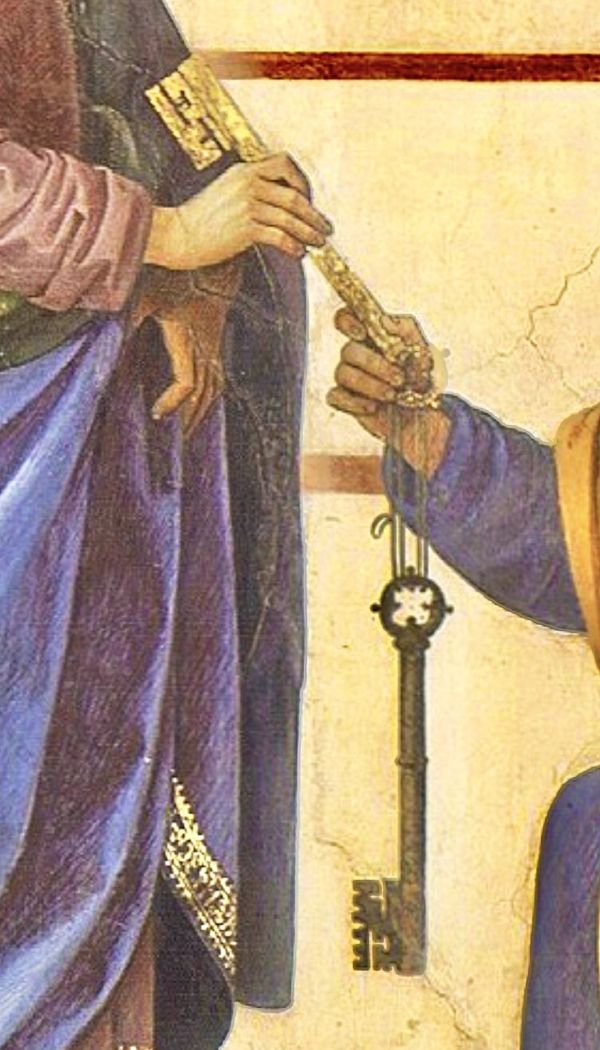(Mt 16:13-19)
Jesus guides his intimates away from the territory of the ideology of power and from the sacred center of the official religious institution, so that they distance themselves from conditioning and appreciation.
[The relative success of the Master in Galilee had revived the apostles' hopes].
The territory of Caesarea Philippi, in the extreme north of Palestine, was enchanting; famous area for lush pastures, beauty of the setting and fertility of flocks and herds.
Even the disciples are fascinated by the landscape and the comfortable life of the inhabitants of the region; not to mention the magnificence of the buildings.
Christ asks the apostles - in practice - what people expected from him - and so He wants them to realize the harmful effects of their own preaching.
The call of the context alludes to the comforts that the pagan religion proposes, and stupefied the Twelve.
While the gods show that they know how to fill their devotees with goods - and a sumptuous court life that bewitched everyone - what does Christ offer?
The Master realizes that the disciples were still strongly conditioned by the propaganda of the political and religious government (vv.6.11), which ensured well-being (vv.5-12; Mt 15:32-38).
Jesus instructs them again, so that at least his closest ones can overcome the blindness, the crisis produced by his Cross (v.21) and the commitment required in the perspective of self-giving.
He is not only a continuer of the clear attitude of the Baptist, never inclined to compromise towards the courts and opulence; nor one of the many restorers of the law of Moses, with the zeal of Elijah.
He did not want to limit himself to purifying religion of spurious elements, but ‘replace’ the Temple (Mt 21:12-17.18-19.42; 23:2.37-39; 24:30) - the meeting place between the Father and his sons.
On this question, at that moment the distances not only with paganism, but also the contrasts between Jews converted to the Lord and believers according to tradition were particularly vivid.
In fact, the sacred books of late Judaism spoke of great personalities who had left an imprint in the history of Israel, and should have reappeared to usher in the messianic times.
But even within the persecuted communities of Galilee and Syria of Mt there was a lack of understanding, and all the difficulty of embracing the new proposal that did not guarantee glory or material goals.
It was realized that the Faith did not easily accord with the first human impulses: it was disconcerting for the obvious views and its impulses.
Thus Jesus contradicts Peter himself (vv.20.23), whose opinion remained linked to the conformist and popular idea of «the» (vv.16.20: «that») awaited Messiah.
Hence the ‘messianic secret’ imposed on those who preach it in that equivocal way (v.20).
The chief of the apostles - weak in Faith - must stop showing Christ which path to follow «behind» him (v.23), deviating Him!
Simone - each of the leaders of the assembly - has to start being a pupil again; stop drawing roads, kidnapping God in the name of God.
He was forced by the Lord to realize firsthand the novelty of God.
Its «Keys» are therefore not to close the Kingdom, but to open its Doors wide, that is, to make the Church a humanizing, open Community; free from one-sided conditioning.
This is the new task of the 'Chair of Peter': to help believers break out of a canvas of taken-for-granted, or elitist, normalizing and artificial expectations, incapable of regenerating the world.
[Chair of st Peter, February 22]












